Firm News
APA Honors DLR Group for Advancing Diversity and Social Change
October 23, 2024DLR Group’s planning efforts with Austin ISD have earned the firm its first national APA award.
Read More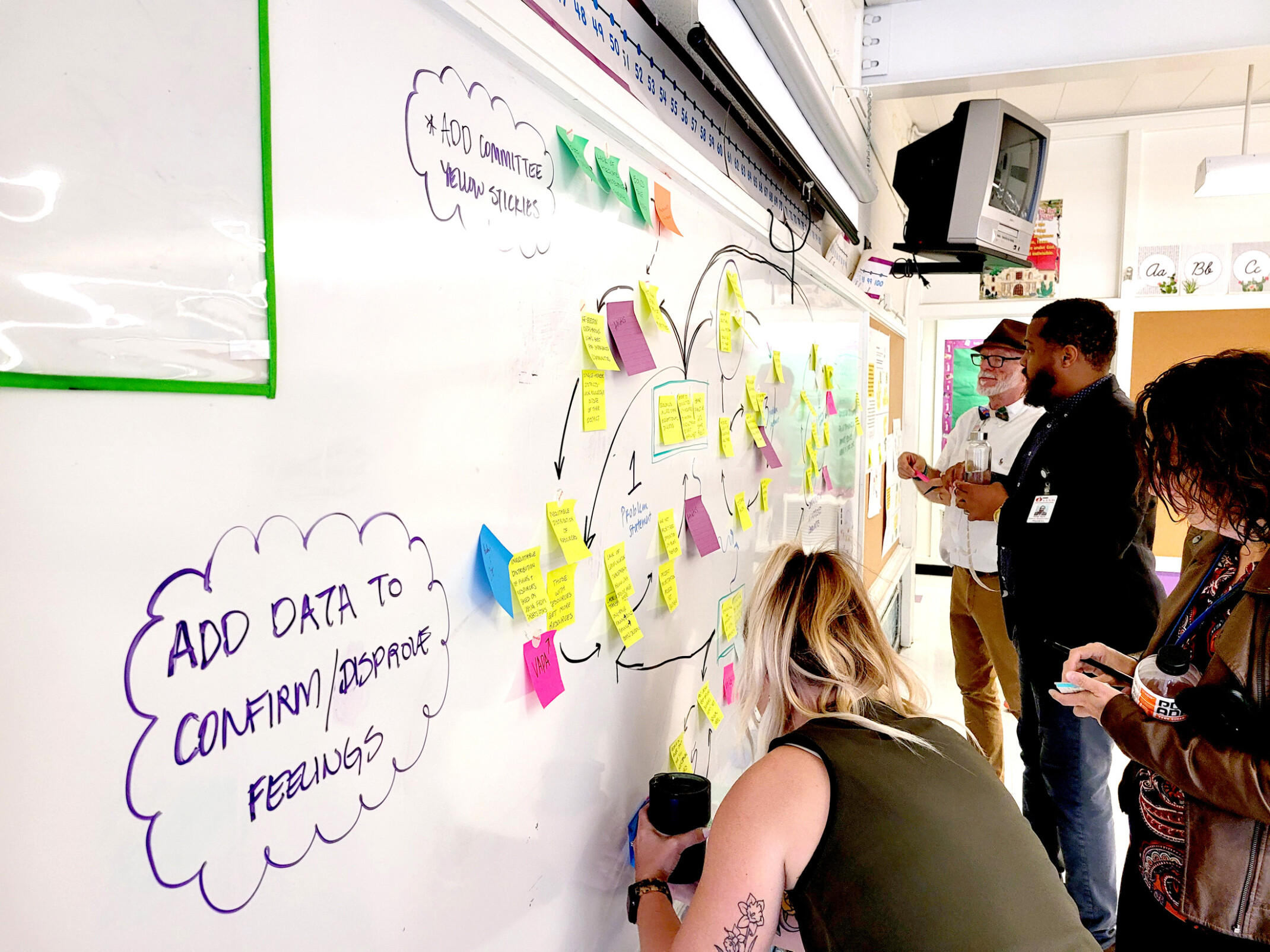
Austin Independent School District
Austin, TX
$2.4 Billion
30
When working in tandem with our K-12 Education clients, our approach brings a neighborhood lens to facilities planning to support our vision to advocate for communities. This starts with understanding the equity challenges that our clients are facing. In Austin, we were able to learn from community members and work together to build a long-range plan, tailored to the needs of those who live in the community. It was by listening to their experiences, and affirming them through our data-driven approach, that we were able to co-create an equitable future for Austin ISD.
Austin ISD was charged with creating a new long-range plan for the community. The district faced declining enrollment like many large urban districts around the country - to the tune of 5,000 students over a six-year span. Previously, the district answered declining enrollment and deteriorating facilities through school closures and consolidation. This reinforced inequities in historically underserved communities. Through these actions, the community held a distrust and believed that the district would not listen or act on the adversity they were facing. District leaders acknowledged their contribution in the structures that fueled systemic racism and racial segregation, citing past planning processes and school closures. They also seized an opportunity to rebuild the community’s trust through an equity-based long-range facilities plan, which includes operational and facility planning to transform the district and ensure that community voices meaningfully impact decisions.
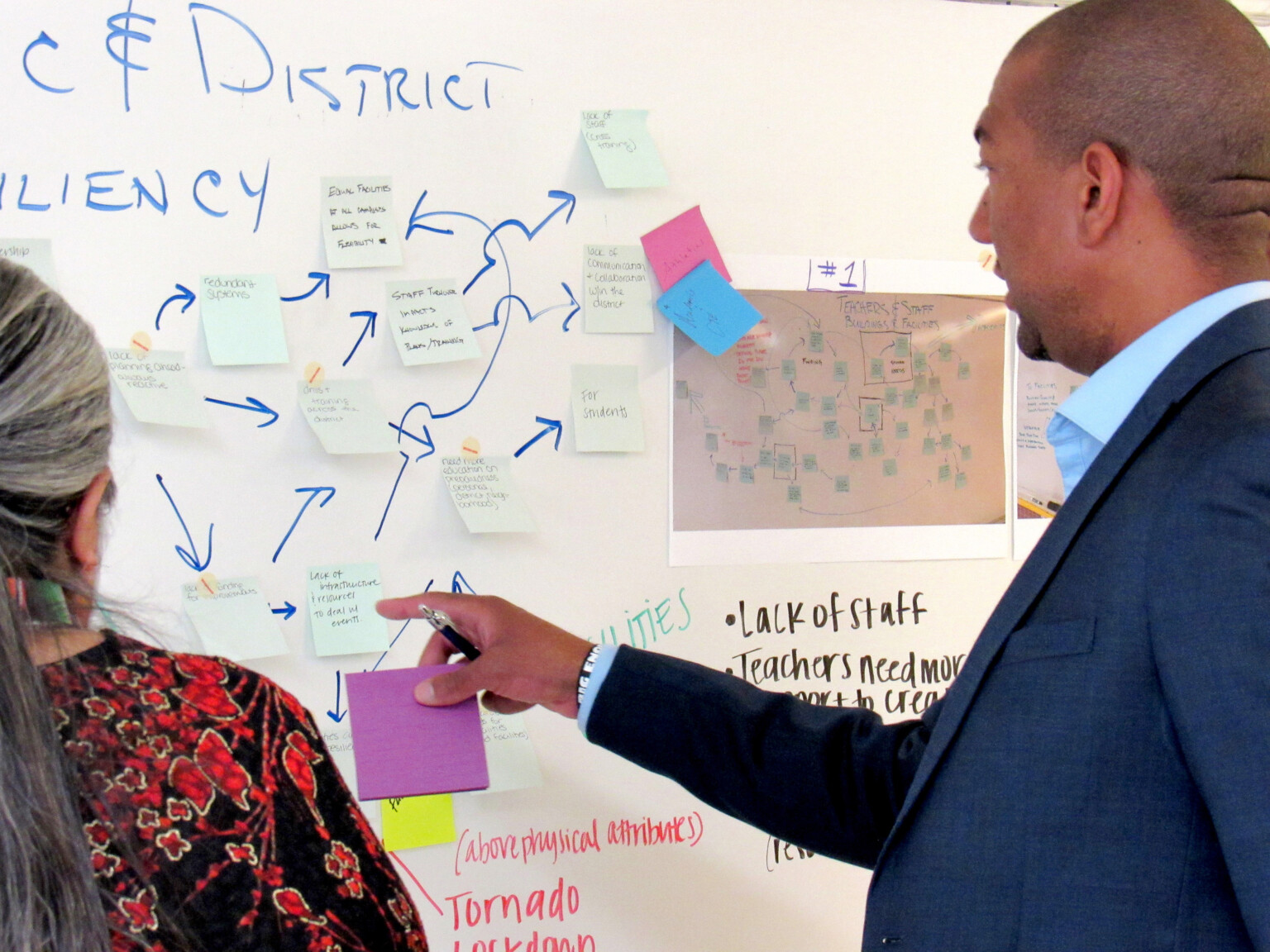
Equity by Design began in 2016 as a part of work led by Dr. Stephanie Hawley alongside higher education students, community members, organizers, and leaders with the Mayor’s Taskforce on Institutional Racism. In 2019, when Dr. Hawley joined Austin ISD as the first Equity Officer, she adapted and customized the Equity by Design approach with Austin ISD students, staff, and educators. This approach prioritizes people and their lived experiences, as high-impact, long-term decisions are made. The process is not linear; it requires that multiple activity stages are led simultaneously to support cultural shifts and sustained collaborative decision-making and planning. Most importantly, the process disrupts traditional, exclusionary, top-down planning practices and provides continuous opportunities for engagement and two-way learning.
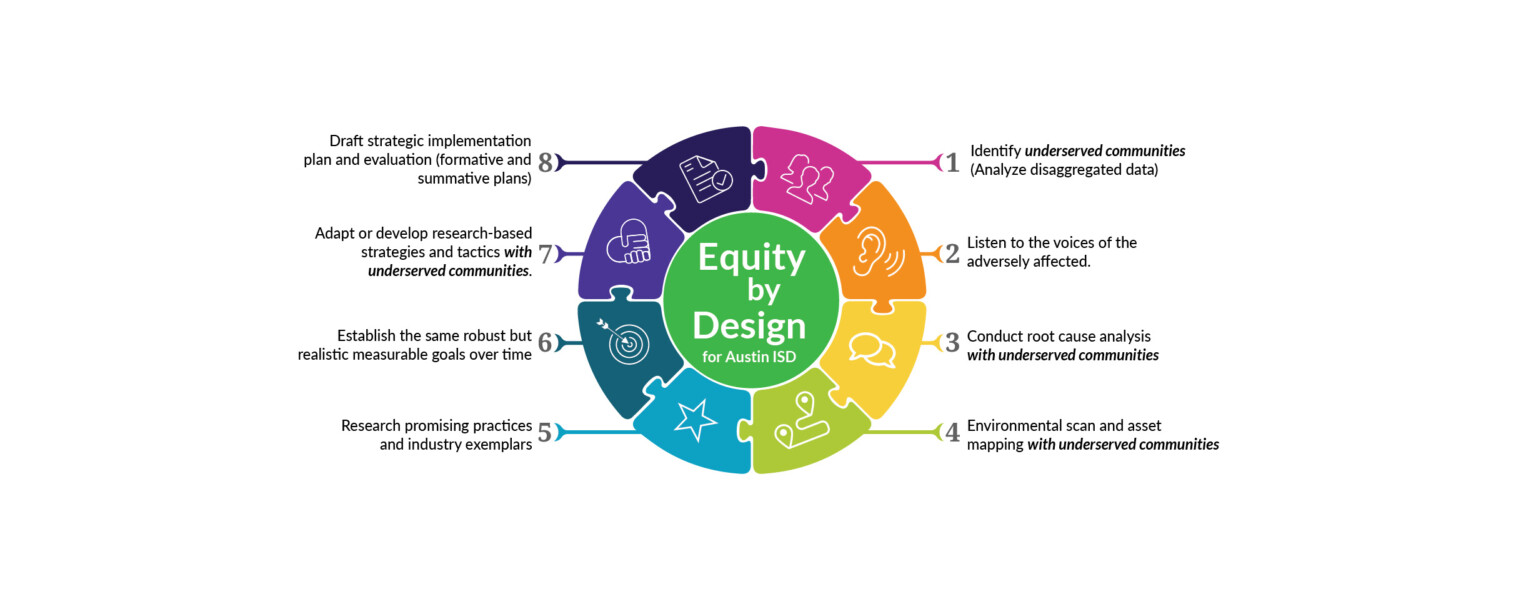
Equity by Design is an eight-step planning process created by Austin ISD’s Dr. Stephanie Hawley.
We were able to deliver the data that Austin ISD needed to pave the way for an equity-based long-range facilities plan. We accomplished this using Geographic Information Systems. GIS enabled us to examine the economic, social, and environmental conditions within the communities of Austin ISD. Our analysis was focused on three main categories – students, neighborhoods, and facilities. With the help of Austin ISD and community stakeholders, we developed a list of historically underserved student groups. This revealed the schools with high percentages of students from these underserved groups. We then analyzed census tracts and the CDC’s Social Vulnerability Index to confirm the neighborhoods these students lived in. Finally, we examined the conditions of the existing facilities in the district. Using GIS, we overlayed the data we used to find underserved student populations, neighborhoods with high social vulnerability, and schools with average or worse facilities. Through this process, the team collectively prioritized 25 schools that have average or worse facilities conditions and are in neighborhoods of high social vulnerability where high percentages of underserved student populations attend. Identifying these schools created a launching point to go into the community and conduct listening tours. In total, we delivered over 400 strategies to Austin ISD that were both operational and bond related. These strategies were broken down into three categories to meet immediate goals, near-future goals, and future goals. They covered every facet of the district, encompassing academics, athletics, facilities, food services, maintenance, resiliency, safety, technology, transportation, and visual and performing arts.
The most critical component to Austin ISD’s long-range facilities plan was engaging and activating its community. This included families, businesses, individual community leaders, local businesses, and other community organizations. For too long, community members had felt shutout and not heard. We partnered with Austin ISD committee members, as well as the community members they represented, to seek and understand how their equity aspirations could be reached through analysis and methodology. After our team, in partnership with Austin ISD, identified the intersection of vulnerable neighborhoods, schools serving underserved students and average or worse facilities, team members contacted those affected to hear their lived experiences within the district. This action was grander than holding town hall meetings and other non-inclusive outreach initiatives. We reached out to individual families through one-on-one phone calls to hear their problems first-hand, to actively listen, and to empathize with the hardships they faced. For our team members and the Austin ISD planning staff, these phone calls were a pivotal moment in their careers and this process, increasing humility and empathy with the people we serve in our roles as planners. Over a two-year span, more than 900 community members were engaged, totaling over 10,000 hours of community outreach, workshops, and equity training. The vulnerability and empathy shown by Austin ISD leaders to their community delivered a long-range plan explicitly tailored by the community, with the community. In November 2022, the community showcased that trust had also been restored. With 74% approval, Austin passed a $2.4 billion bond package, its largest ever. Community members will see their vision for an equity-based future come to fruition as 73% of these bond funds are designated for students in historically underserved communities. The team’s planning prowess created a deliverable that’s a resource in Austin’s equity journey and is a model for other districts. Together, we applied an equity framework to a long-range planning process that centers underserved students and communities and created a plan with the community not for it.
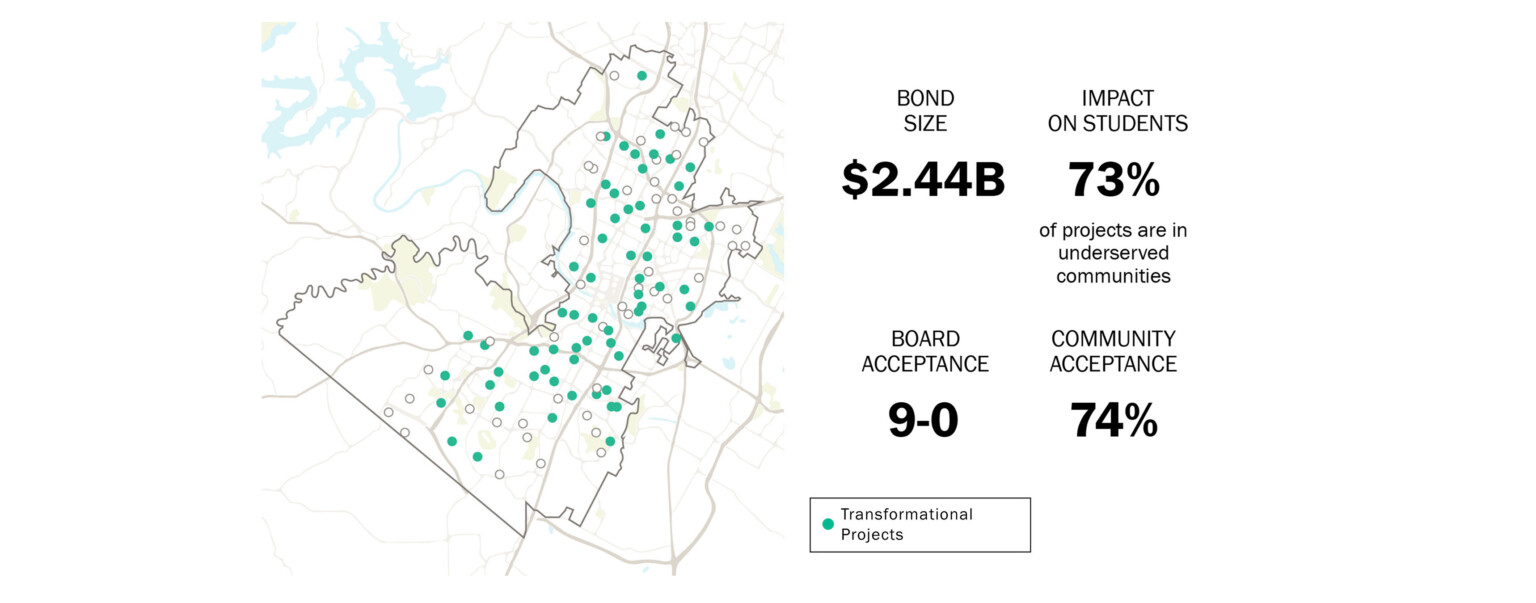
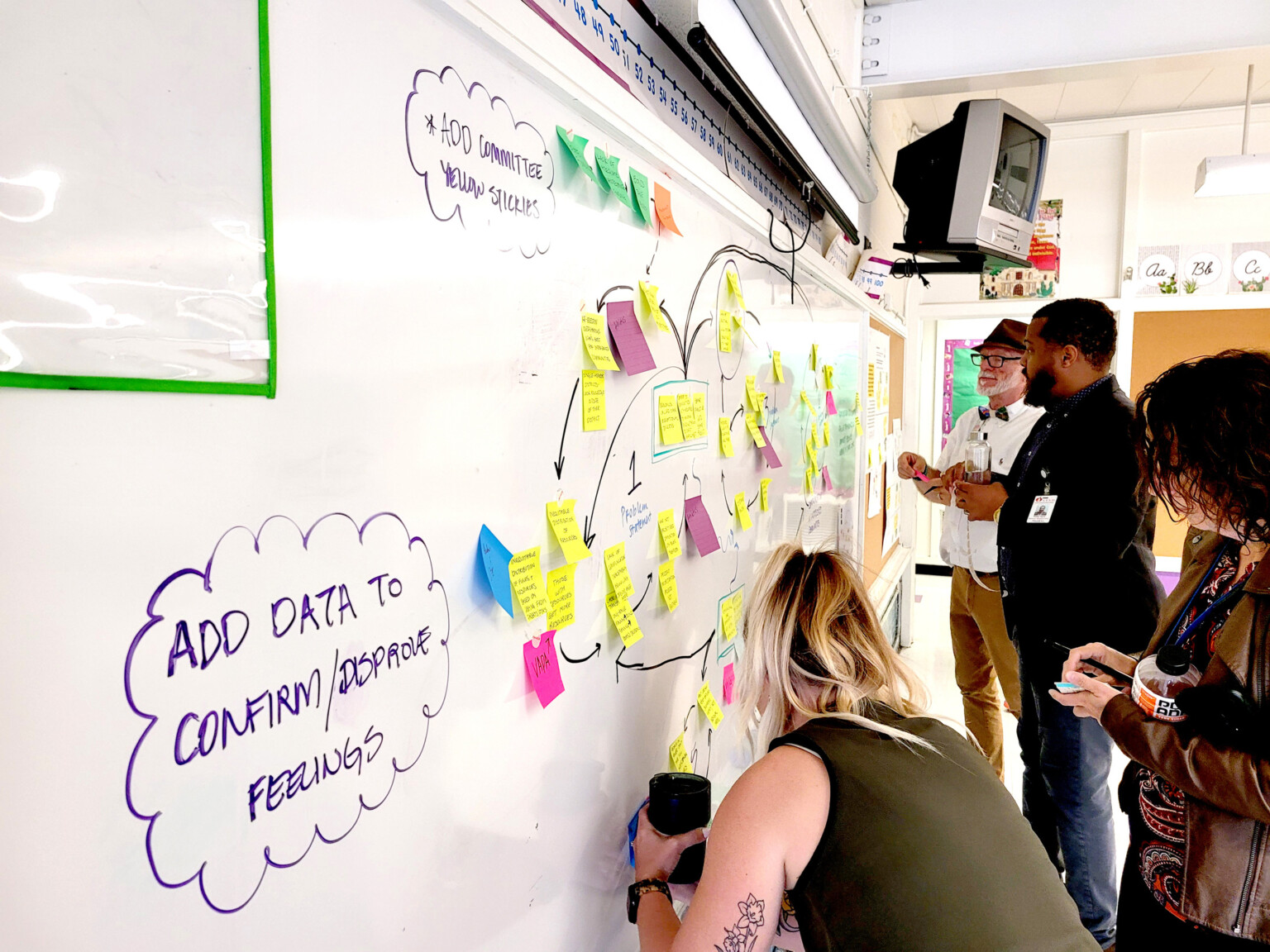
DLR Group’s planning efforts with Austin ISD have earned the firm its first national APA award.
Read More
District leaders saw an opportunity to rebuild the community’s trust through an equity-based long-range plan which includes operational and facility planning to transform the district.
Read More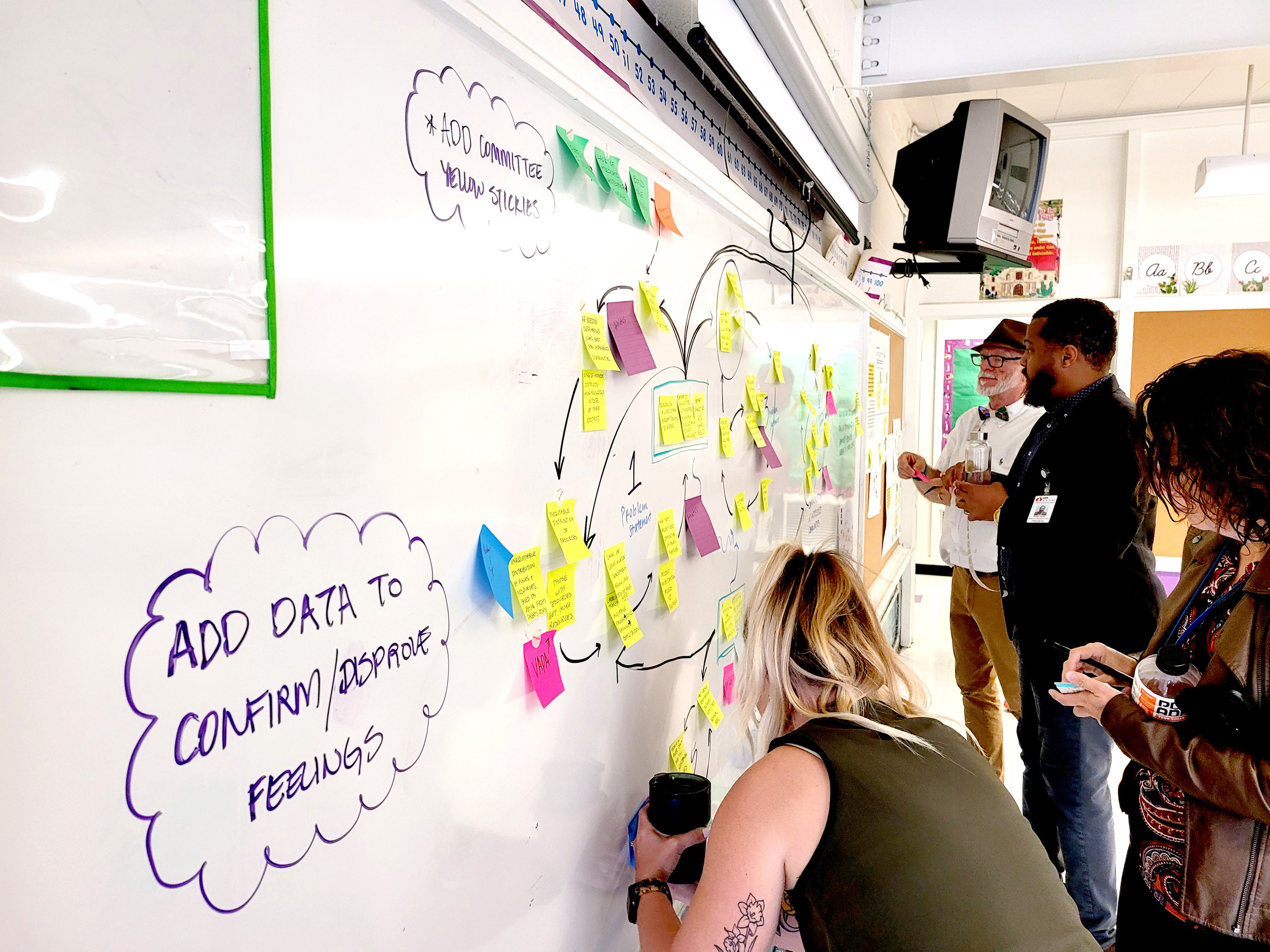
Over a two-year span, more than 900 community members were engaged, totaling over 10,000 hours of community outreach, workshops, and equity training. The vulnerability and empathy shown by Austin ISD leaders to their community delivered a long-range plan explicitly tailored by the community, with the community.